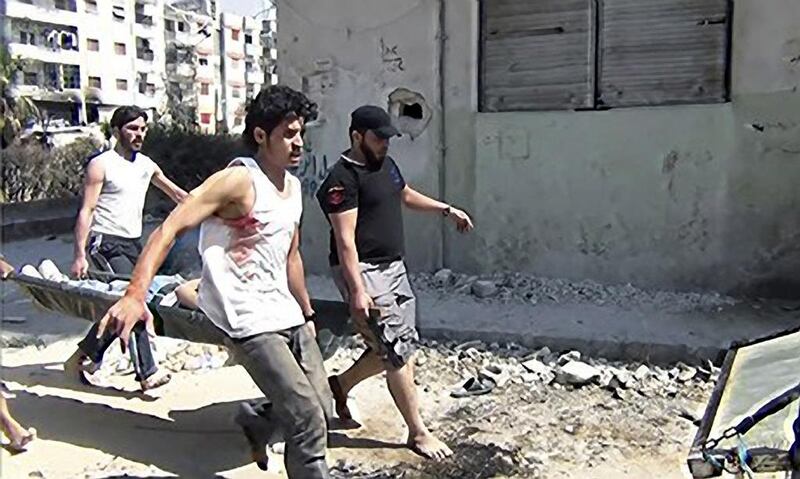The director of a Syrian documentary that scooped a top prize at the Sundance Film Festival says his film pays tribute to the “steadfastness” of the besieged city of Homs.
The movie Return to Homs was awarded the World Cinema Grand Jury Prize for a documentary at the prestigious American film festival last week.
Talal Derki’s film tracks the evolution of the Syrian uprising from peaceful protests to an entrenched, brutal war that has killed more than 130,000 people.
“Homs was nicknamed the capital of the revolution because of the strength of the protests and the peaceful movement there,” says Derki.
Born in Damascus in 1977, Derki decided to focus on Homs, Syria’s third city, because it was a magnet for activists and protesters in the early days of the uprising that broke out in March 2011.
He followed two young Syrians, Abdel-Basset Al Sarout, a goalkeeper who became the city’s most popular singer of protest songs, and Osama Al Homsi, a university student-turned-media activist. But as Bashar Al Assad’s regime reacts to the protests with violence, the pair respond differently.
“One of them took up weapons and the other remained peaceful up until his arrest, after which there was no news of him,” says Derki.
Al Sarout is seen commanding rebel forces, while Al Homsi remains unarmed, documenting the plight of his hometown.
Derki, who is now based on the Turkish side of the border with Syria, is working on another documentary about the war in Syria.
He says he believes films can “bring us together” and that the reaction to Return to Homs had been overwhelmingly positive, especially in the US.
"Even those who don't know the slightest bit about the conflict in Syria saw everything clearly," he says. "There are people who came out of the cinema and said: we have brothers in Syria who we didn't understand properly until now. They need us to stand by them, even if it is with words." – AFP





